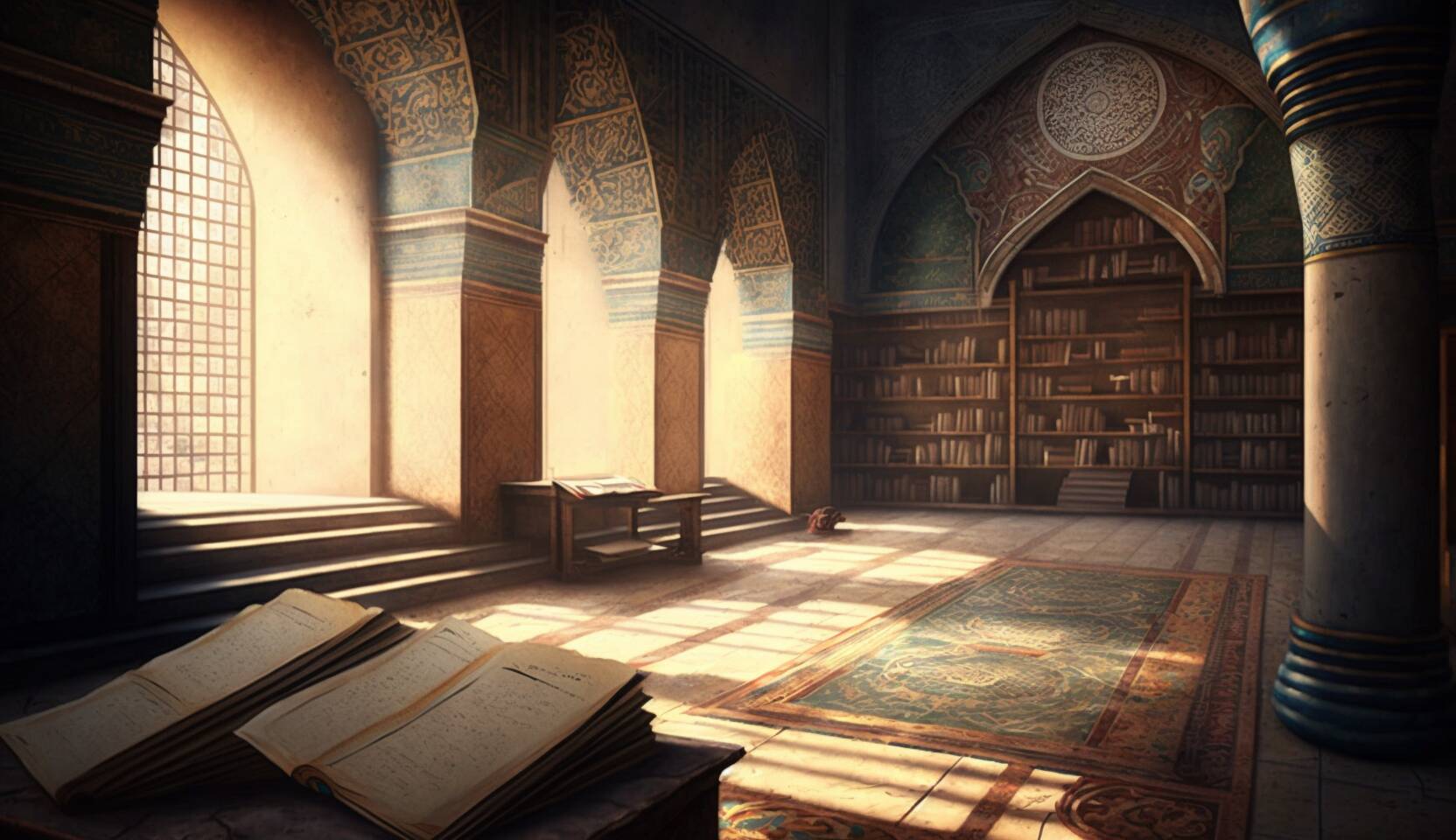The Method of Talqeen for Quran Memorization

Picture this: a time where papyrus was the norm and the written word was a luxury. Amidst this era, a technique emerged that would sculpt the future of Quran memorization, a process revered and practiced rigorously even today. This mesmerizing technique is none other than Talqeen. Dive in with us as we uncover the fascinating intricacies, the deep historical roots, and the unbroken tradition of this age-old technique.
A Step Back in Time: The Origins of Talqeen📜
When we talk about Talqeen, we are essentially referring to a method that dates back to the time when the holy Quran was revealed. This technique was a magnificent solution to the issue of preserving the sanctity and authenticity of the Quran in an age where written mediums were scarce.
The term "Talqeen" is derived from the Arabic root word which means "to induce" or "to instill". This method involves an instructor orally transmitting verses to students, who in turn, repeat and memorize them, a process that combines auditory and vocal learning strategies to foster a powerful memorization technique.
Historically, the Prophet Muhammad, who was known to be illiterate, would memorize the revelations he received from the Angel Jibril. His companions, following in his footsteps, also adopted this method to commit the divine scriptures to memory. This early initiation of the Talqeen method marked the beginning of a tradition that would be passed down through generations, an unbroken thread weaving through the fabric of Islamic history.
The Middle Ages: The Golden Era of Talqeen🏛️
As we journey forward to the Middle Ages, the Islamic world was blooming into a golden era of science, literature, and arts. During this period, the way of Talqeen evolved and flourished. Scholars and memorizers, known as "Hafiz" or "Huffadh", would gather in madrasas, a hub of knowledge, where the Talqeen method was refined further.
It was during this time that the method expanded to include various other techniques that supplemented the process of memorization, such as Tajwid, which emphasizes the correct pronunciation and melodic ways of reciting the Quran. This golden era marked the consolidation of Talqeen as a systematic method for Quran memorization, a method that garnered reverence and respect throughout the Islamic world.
The Modern Era: A Resilient Tradition💻
Fast forward to today, the Talqeen method stands resilient, retaining its charm and efficacy in the modern world. While technology has revolutionized education, the traditional Talqeen method remains a preferred technique of Quran memorization globally. Schools, mosques, and Islamic centers across the globe, from the busy streets of Cairo to the sprawling cities of Jakarta, continue to employ this method to teach the younger generations.
Furthermore, the proliferation of online platforms has made it easier for individuals from various walks of life to engage with this ancient art. Virtual classes and digital platforms now offer Talqeen-based courses, blending modern convenience with age-old tradition. The integration of technology into this traditional framework has breathed new life into the method, ensuring its continuation in the modern era.

The Essence of Community and Connectivity👥
What stands at the core of the Talqeen method is the sense of community and connectivity it fosters. The process of orally transmitting the Quran from teacher to student creates a bond, a link that connects generations upon generations in an unbroken chain of knowledge and spirituality. This sense of community and connectivity is perhaps what has made the method withstand the test of time.
Moreover, the process of Talqeen is not just about rote memorization. It's a comprehensive approach that encompasses understanding, reflection, and application of the teachings contained within the Quran. Memorizers imbibe not just the words, but the essence and spirit of the text, fostering a deep, intrinsic connection with the divine revelations.
The Cultural Significance and Reverence📖
In many communities, completing the memorization of the Quran through this method and many others is a milestone met with grand celebrations and immense respect. A Hafiz who has memorized the Quran through this method holds a special place in society, often leading prayers and being revered as custodians of this divine knowledge.
Furthermore, annual competitions and recitation events are held worldwide, where individuals who have memorized the Quran via the Talqeen method gather to showcase their proficiency and reverence for the text. These events are a testament to the widespread appreciation and recognition of the Talqeen method, a celebration of a living tradition that breathes life into the words of the Quran.
A Living Testament to Time⏳
The way of Talqeen is a mesmerizing dance between the past and the present, a living testament to the resilience of tradition in the face of time. As we stand in the modern era, this method remains a vibrant part of the Islamic educational framework, fostering community, connectivity, and reverence for the divine word.
Through its journey from the sands of Arabia to the digital platforms of today, the Talqeen method has proven its efficacy and sanctity, embodying the rich heritage and profound spirituality of Quran memorization. It stands as a beacon of light, guiding generations towards the beautiful path of understanding, reflection, and divine connection.
So, the next time you witness a young child or group of children reciting verses with unwavering concentration, know that you are witnessing a tradition that has flowed through the rivers of time, a beautiful process that nurtures not just the mind, but the soul, guiding individuals on a journey to memorizing the Quran.
Boost your Learning!🚀
If you’re using the method of Talqeen throughout the day in class or with your peers, review what you know by going toe-to-toe with our AI! Hide the verses in Memorization Mode and start reciting; if you’re right, the verses will appear on the screen as you go, but if you’re wrong, you’ll be alerted of a mistake in your recitation. Up for the challenge? Get started with the button below!👇



